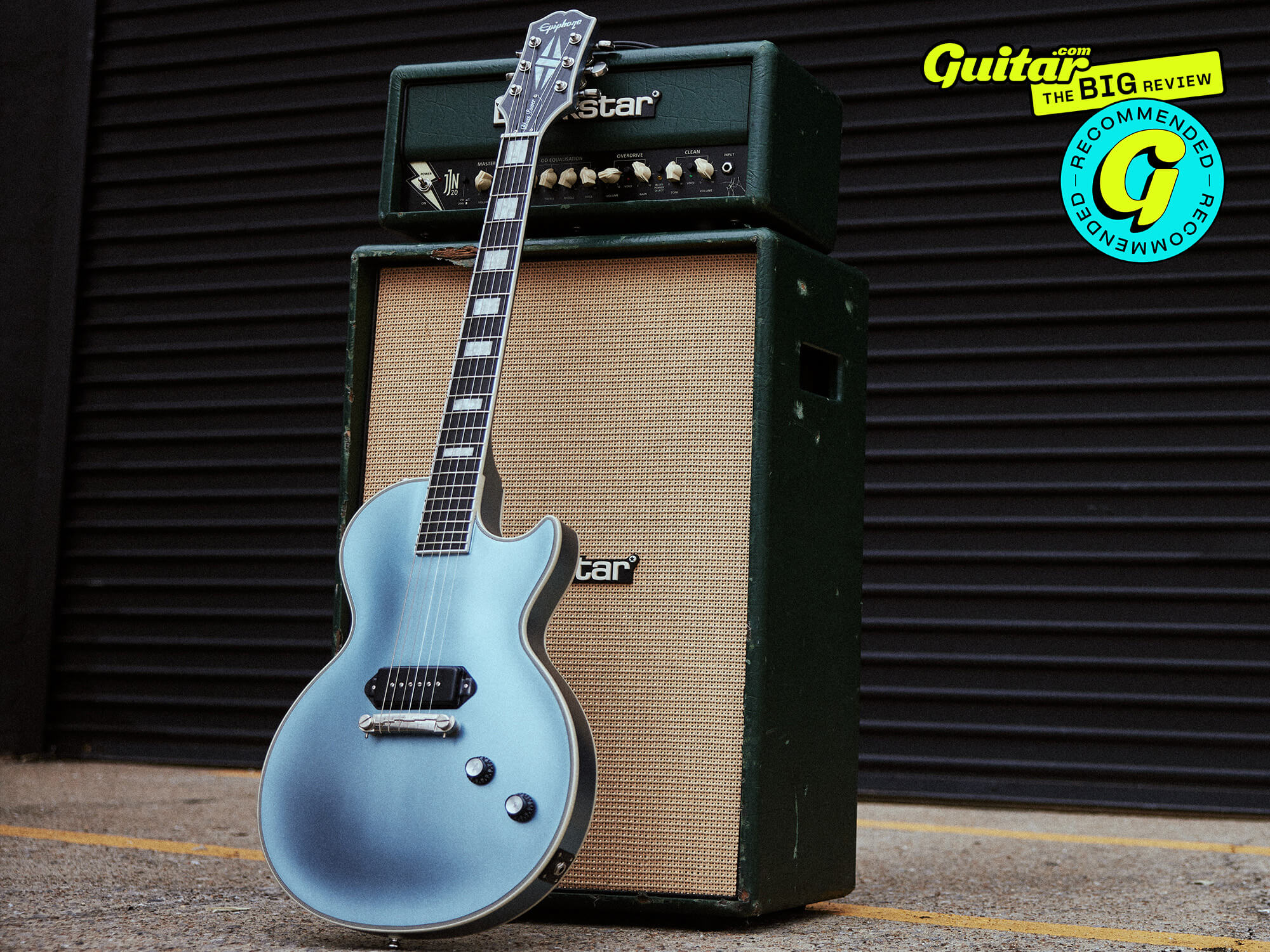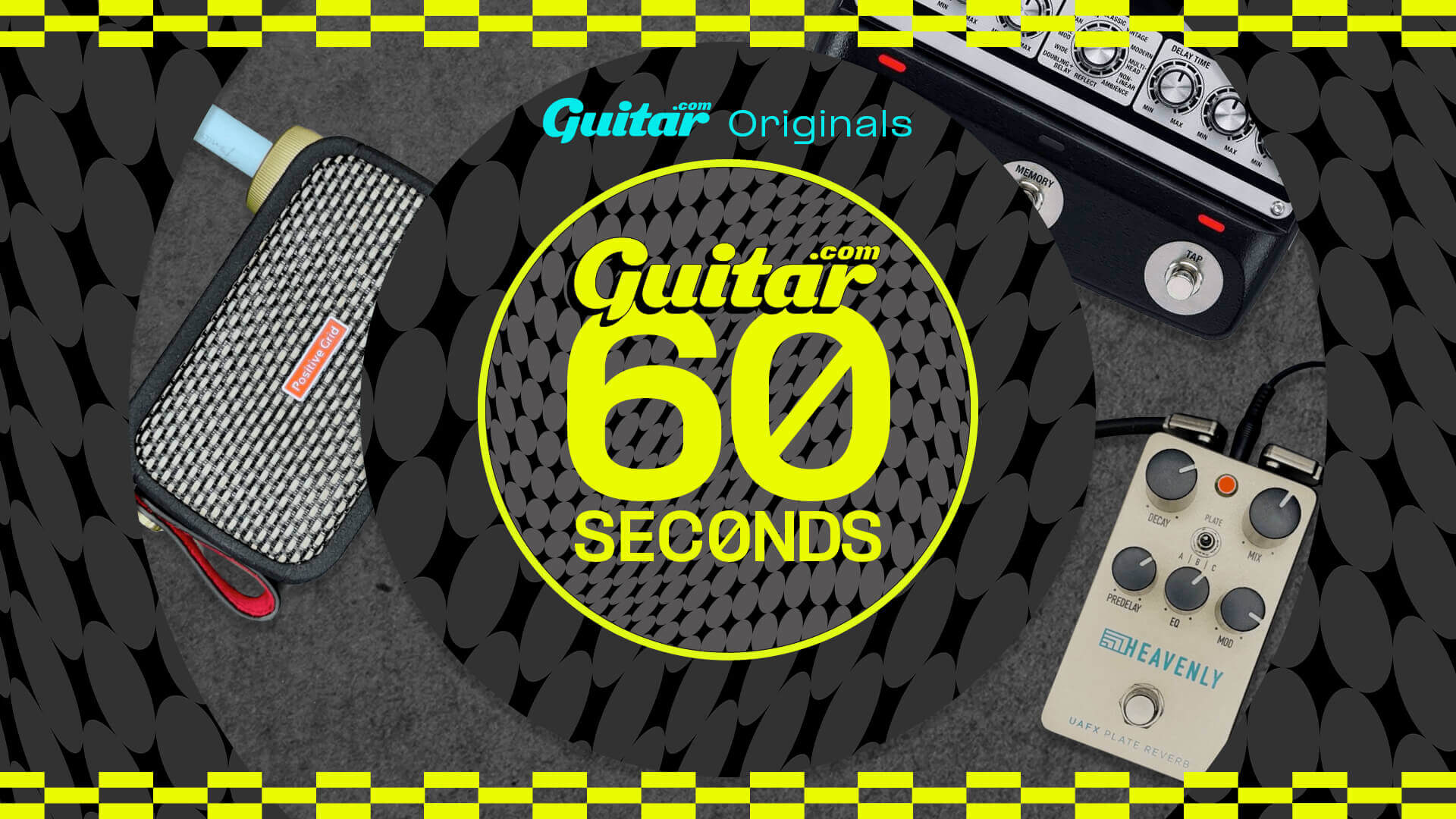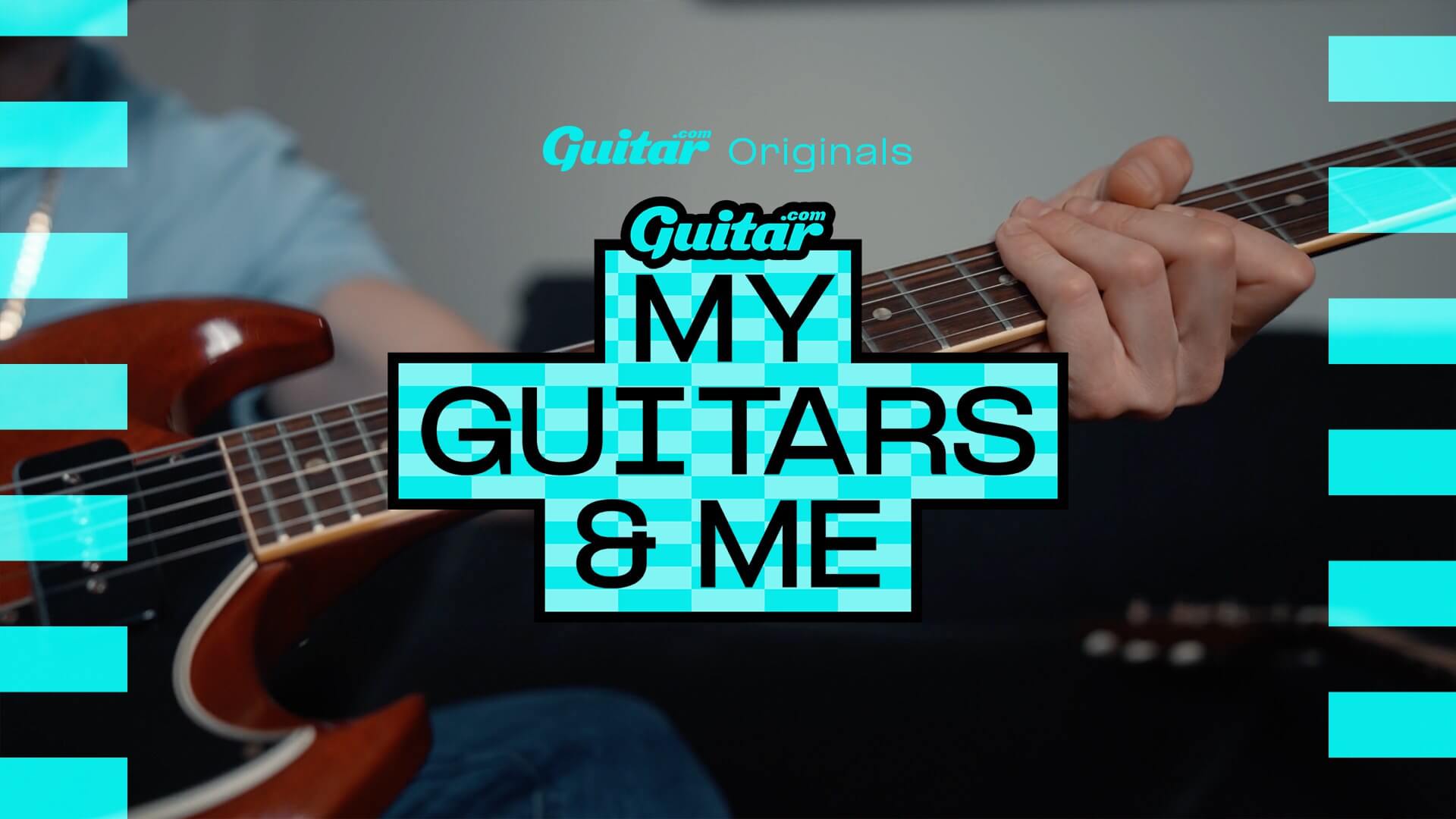Epiphone Jared James Nichols “Blues Power” Les Paul Custom review – more than just a paint job
The blues-rock phenom’s third Epiphone signature model might be his prettiest one yet – but there’s more going on under the hood than a cosmetic overhaul

Epiphone Jared James Nichols “Blues Power” Les Paul Custom
Review Overview
Our rating
9
Our verdict
£999/$999, epiphone.com
If you’re reading this you probably know who Jared James Nichols is already – the triple-threat guitarist, singer and songwriter has been carrying the torch for Blues Power for over a decade now, and in that time he’s also become one of Epiphone’s most recognisable signature artists. With a series of single-pickup Les Pauls that unlike many purveyors of ‘budget’ signature models, the 34-year-old actually plays live and on record right alongside his bona fide 50s stalwarts.
The original JJN signature model was the limited-run black Old Glory, released back in 2021, and that was then followed up with the Goldtop Gold Glory in 2021. Now, the original intention was for the Gold Glory to be a limited run too, but they sold so well, Epiphone just kept making ’em!
It wasn’t hard to see why – I remember trying the GG several times at Gibson’s Garage in Nashville and very nearly heading straight to the counter with my credit card, such was its blend of great sound, playability and uniqueness. The only thing that put me off was the Seymour Duncan P-90 pickup, which was a bit noisy when you added some gain.
Now however, we have Blues Power – the third JJN signature model that is more than just a colour swap. Blues Power is a fully upgraded and overhauled take on the single-pickup concept that looks set to answer my criticisms straight out of the gate.

How is the Epiphone JJN Blues Power different from Gold Glory?
“The biggest differences are two super key components,” Jared tells me about the evolution of his signature design. “I was able to design and collaborate with Seymour Duncan on the signature P-90, which was a dream come true. Not only that but we have the quality where it is a P-90 Silencer, so it cut down on the hum by about 85 per cent! Secondly, the locking Rotomatic tuners make the Blues Power more player friendly.”
So there you have it, the promise of a custom P-90 that addresses my issues with the original’s noisy pickup, plus some locking tuners to enhance overall stability… oh and there’s the small matter of that stunning Pelham Blue finish.
“My whole life I’ve wanted a Pelham Blue Les Paul,” Jared explains. “And you don’t see that colour a lot. So when Epiphone asked me about a new colour I asked if we could do Pelham Blue!” It’s not just a pretty colour, however – like Jared’s own guitars this thing is designed to wear and age with you.
“It’s cool because it is a double-aged matt gloss,” Jared explains. “So, as you play it, it kind of rubs and gets glossy where your forearm hits it and where you’re picking. It has a vintage kind of aesthetic, but it still looks really fresh.” Let’s dive in and find out what all the fuss is about.

What does the Epiphone Blues Power sound like?
As stated, I found the P-90 in Gold Glory to be noisy, but also quite uninspiring when you added overdrive or distortion into the chain – in truth it seemed to make things more wooly than anything.
The new Silencer JJN P-90B from Seymour Duncan then, is a massive plus for me. Plugging in, it retains most of the qualities that you’d expect from a regular P-90 pickup, but without any of the noise or wooliness. The beauty of a P-90 is of course that it sits in the middle of a single-coil, humbucker and Filter’Tron tonally, and this delivers all that in spades, but while a garden variety P-90 can be tricky to tame when at higher volumes, especially when you add effects pedals into the chain, I have no such issues with the Silencer.

Does the Epiphone Blues Power stay in tune?
Locking tuners are quite a polarising issue for guitar players, and while you’re welcome to disagree for me they’re such a boon – they make restringing guitars easier and requires less stretching of your strings when they’re new… what’s not to like?
While I didn’t notice too much wrong with the standard Grover tuners on Gold Glory, a locking set here definitely makes sense – after all, if you’re playing the sort of high-octane rock and blues that is JJN’s stock in trade, you’re going to be doing some serious bends, and anything that helps keep the guitar stable in those conditions can only be welcomed.
I also think that the new tuners give the Blues Power slightly more sustain, though I imagine the Silencer pickup is probably playing a role there too.
Either way, these new tuners make life easier, and further enhance the stability and playability of what was a very good guitar to start off with.

Is the Epiphone Blues Power worth buying?
The temptation is to look at the Blues Power and assume that this is just a cosmetic overhaul – and even if it was, that wouldn’t be a bad thing. Pelham Blue is one of the most beautiful Gibson colours, which has seen something of a resurgence thanks in no small part to Mr Dave Grohl. Ultimately, what are guitars if not playable works of art, and in this case the Blues Power will be just as easy to admire hanging on the wall as it is in the hands.
But of course, this isn’t just a cosmetic overhaul – the new pickup and tuners are genuine enhancements to what was already a pretty great formula, and if, like me, the pickup has slightly chilled you on the fun of these guitars, this guitar makes a second look essential.
With an upgraded Seymour Duncan pickup and the new tuners – plus that very cool new paint job of course – the Blues Power is a more well-rounded instrument than previous models, and the best Jared James Nichols signature yet.

Epiphone Blues Power alternative options
- Epiphone 1959 Les Paul Standard ($999/£969)
- Epiphone Les Paul Custom ($799/£799)
- PRS SE McCarty 594 Singlecut ($759/£899)



